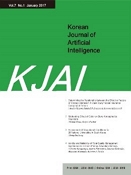 E-ISSN : 2508-7894
E-ISSN : 2508-7894
Joon Ho KWAK
KyoungWoo CHO
JaeYoung HWANG
Sung-Min WOO
Abstract
With recent advancements in artificial intelligence (AI) technology, more products based on AI are being launched and used. However, using AI safely requires an awareness of the potential risks it can pose. These concerns must be evaluated by experts and users must be informed of the results. In response to this need, many countries have implemented certification programs for products based on AI. In this study, we analyze several trends and differences in AI product certification programs across several countries and emphasize the importance of such programs in ensuring the safety and trustworthiness of products that include AI. To this end, we examine four international AI product certification programs and suggest methods for improving and promoting these programs. The certification programs target AI products produced for specific purposes such as autonomous intelligence systems and facial recognition technology, or extend a conventional software quality certification based on the ISO/IEC 25000 standard. The results of our analysis show that companies aim to strategically differentiate their products in the market by ensuring the quality and trustworthiness of AI technologies. Additionally, we propose methods to improve and promote the certification programs based on the results. These findings provide new knowledge and insights that contribute to the development of AI-based product certification programs.
- keywords
- AI, Artificial Intelligence, AI products, Certification Programs
- Downloaded
- Viewed
- 0KCI Citations
- 0WOS Citations













